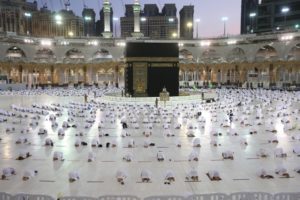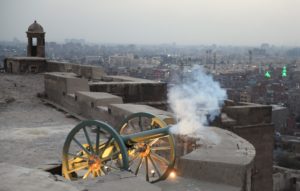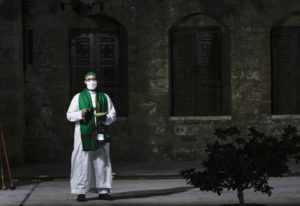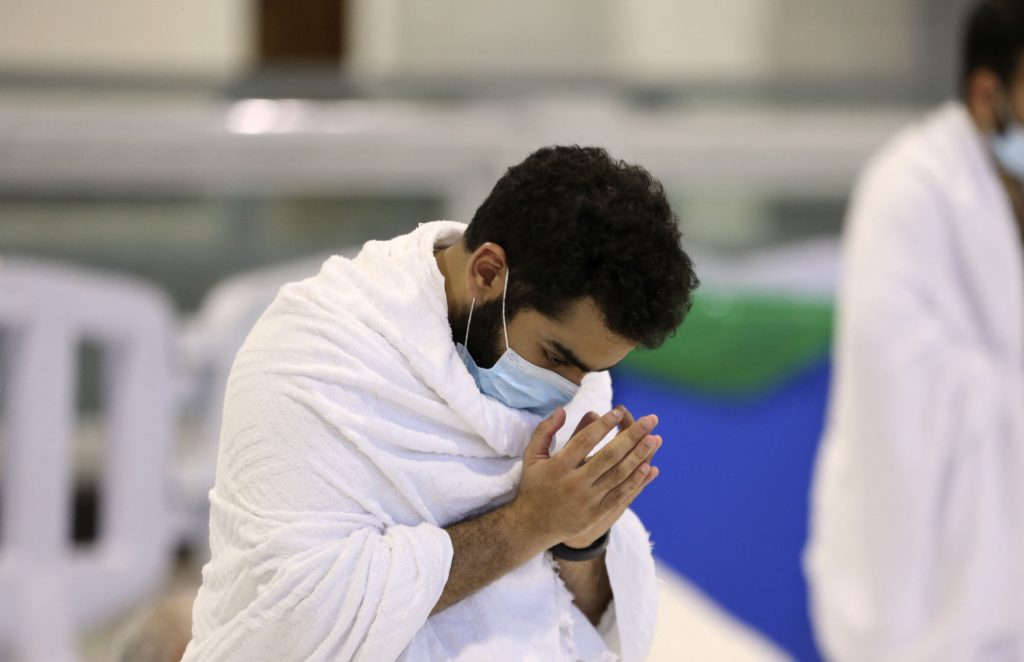São Paulo – Some 2 billion Muslims around the world are celebrating the first day of Ramadan this Tuesday (13). For the second year on end, Ramadan in Saudi Arabia and the world is taking place amid precautions against the coronavirus. “The month of Ramadan is upon us and the world is suffering from the coronavirus pandemic. We thank God for the scientific efforts in developing vaccines to curb the pandemic,” Saudi Arabia’s king Salman bin Abdulaziz Al Saud was quoted as saying by local newspaper Arab News.
Preventive measures are not as strict as last year, but they remain in place across the Arab world to curb the virus’ spread. Find out what Ramadan will be like in Saudi Arabia, the UAE, Lebanon and Egypt. The information below is from the UAE’s The National daily.
Saudi Arabia
The pandemic is far from over, and Saudi Arabia is seeing Covid-19 cases go up. Pilgrims looking to perform the Umrah in Mecca during Ramadan must attest immunity – through vaccination or from having recovered from the virus – to get permits, the Ministry of Hajj and Umrah told the state-run Saudi Press Agency (SPA). The Umrah is a pilgrimage to Mecca that can be done any time of the year, whereas the Hajj takes place during a set period.

Over six million people have been vaccinated in Saudi Arabia. As a result, more people will be allowed at the holy sites than last year. Social distancing and face masks are mandatory for all visitors. Pictured above: Muslims pray around the Kaaba, at the Holy Mosque of Mecca this Tuesday (13).
Mosques across the country that comply with safety protocols will be allowed to function during the holy month, authorities said. No pre- or post-fasting meals (suhur and iftar) will be allowed at mosques. Friday sermons have been cut down to 10 minutes. Worshipers must bring their own prayer rugs and Korans and are required to keep apart. Taraweeh prayers at mosques cannot exceed 30 minutes.
Here’s more on Ramadan:
There will be no iftar or banquet tents outside mosques or anywhere else, and public gatherings are not allowed. Charities have taken steps to ensure food kits are delivered before and during Ramadan. Eating and drinking in public places is not allowed, but not punishable, since some people may have to due to health issues.
According to new Ministry of Human Resources and Social Development guidelines, work shifts cannot exceed five hours a day. Most Muslim-majority countries observe similar rules to those of Saudi Arabia.
United Arab Emirates
Safety restrictions in the UAE remain in force, but the country is gradually reopening a year into the pandemic, and some Ramadan traditions are back.
UAE mosques will remain open for prayer this year, with occupancy caps and other measures to prevent the spread of the virus, including face masks and disinfection of sites before and after prayer.
Families that live together can break their fast together but are not allowed to mingle with people from other households. Large gatherings are not allowed.
There will be no iftar or banquet tents outside mosques or anywhere else. Copies of the Koran cannot be distributed. Supermarkets have reopened full-time.

Muslims can donate to charities and support their communities in any way they can, but not in person. Once again, supporting the needy will be important this year, since many people have been financially impacted by the pandemic.
UAE vice president and Dubai ruler Mohammed bin Rashid Al Maktoum launched a plan to provide 100 million free meals in 20 countries across the region.
In most emirates, eating or drinking in public places is prohibited, but this year, Dubai’s Department of Economic Development said establishments are no longer required to serve food away from public eyes during fasting. Screens and curtains formerly utilized, especially at malls, are no longer required.
Egypt
As the country struggles with a third wave of Covid-19 infections, the administration announced a fresh set of health and safety regulations to mitigate the pandemic during Ramadan.

Rules are noticeably laxer this year than in the last one, with restaurants cleared to open and host limited events. Last year, Ramadan was also the first lockdown month, with tighter guidelines in place.
However, authorities will strictly enforce face masks and social distancing, especially in public transport. Mosques failing to comply with protocols will be fined and even shut down. Ramadan sporting events are not allowed this year.
Lebanon
Although it symbolizes faith and enlightenment to Muslims around the world, Ramadan is also a bold reminder of everything that has changed since last year, especially in Lebanon. The problems facing the country were made worse by last year’s Port of Beirut blast.

Due to mounting Covid-19 numbers, a 9:30 pm-to-5 am curfew will be in effect during the entire month of Ramadan.
Mosques can open for prayer, but only 30% of total capacity is allowed. Iftar and celebrations are prohibited. Vaccination has begun, but progress is slow.
Restaurants are allowed to open at 50% capacity during daytime and must observe the curfew. Delivery services are allowed 24/7.
Translated by Gabriel Pomerancblum








